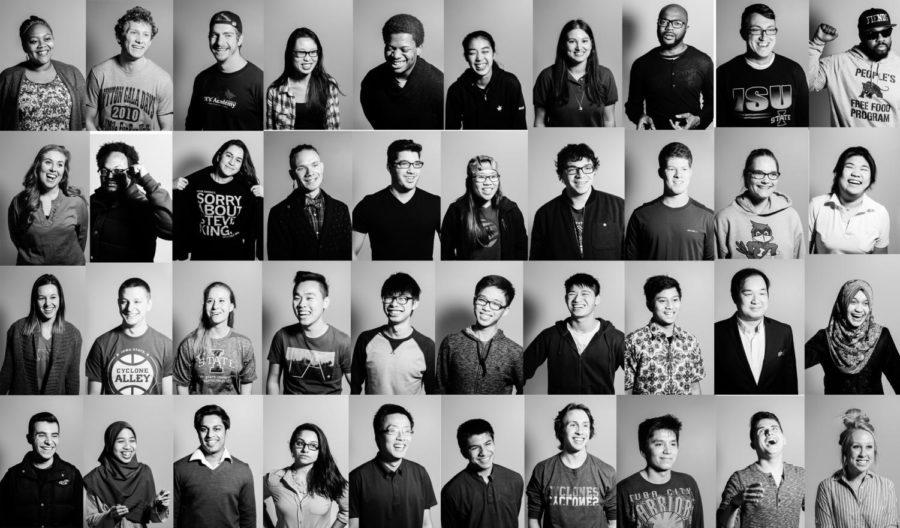Guest Column 6: PSYCH MATTERS: Moving beyond racism at Iowa State
April 25, 2016
The department of psychology wants to help build a more welcoming climate for racial and ethnic minority students, staff and faculty at Iowa State.
One way in which we would like to demonstrate our commitment to reducing racism and discrimination is this editorial series.
For the next several months, educational pieces on the psychology of racism and personal stories written by various faculty and students will be shared. Last time, Nathaniel Wade, professor of psychology, described his personal journey to understanding white privilege.
Today, Meredith Tittler, graduate student in psychology, describes her own awakening to white privilege.
Next time, we will begin a series of editorials written by undergraduate ISU students of color, who describe their experiences of coming to college at Iowa State.
This series was edited by Stephanie Carrera, graduate student in psychology, and Carolyn Cutrona, professor and chair of psychology.
—
The first time I became really aware of my white privilege wasn’t until I was 28 and noticed something happening on Facebook and other social media. This was about a year ago when the Ferguson riots began.
My Black/African-American friends on Facebook posted about the riots, the police brutality that spurred the riots and the years of systemic practices that set our country up for a “boiling” point — they posted news stories, articles, videos and poetry all addressing these topics.
My friends of color were passionate about these issues, they were angry about these issues, and these issues were the prominent thoughts in their minds and in their hearts. When they sat down at their computers, these issues were the first things they shared with the world. These friends of mine also participate in the “normal” activities defined by U.S. mainstream culture like my white friends do. A lot of them were or are in grad school, they’re buying houses, forming or ending relationships and going to this or that concert — but what was most important to them were these pressing issues of race.
My white friends (myself included) continued to post on grad school, buying houses, going to concerts, etc. The riots in Ferguson were just another news item that, for the most part, would go unnoticed. This was the first time I had the thought, “well, that’s kind of screwed up.”
White privilege had never been held in front of my face like that. It made me angry at myself, and it made me angry at my other white friends. Myself and other white friends of mine who are passionate about certain social-political issues like the environment or women’s reproductive health — who see ourselves as forward-thinkers and always trying to do the right thing — have been swimming through a sea of privilege of which I am only now becoming aware of.
We have been able to choose the issues that feel most important to us. My friends of color cared about the riots erupting around the country not because it seemed like a valid human-rights concern, but because they have always experienced what it means to be a person of color in a country built on the pillars of white privilege.
They have not been able to choose their concerns. The fact that myself and other white people in this country can choose what we really care about is kind of screwed up, no? If one group of people has to worry about an issue, then shouldn’t we all worry about the issue? It seems immoral for us all not to care.
I don’t know what specific first steps white individuals should take to help others become aware of the racial issues this country faces. For me, I think some of the first steps involve acknowledging the fact that I grew up in a town that was 98 percent white and that I was taught at a young age that everyone is “equal” (my early indoctrination that there are no “races” [i.e., colorblindness]).
I didn’t live a multiracial reality where I had friends and peers who identified as people of color until my 20s and even then I have always been in the racial/ethnic majority. In many ways, I am still ignorant. I have biases or prejudices of which I am not aware but that I am learning to identify.
I will continue to say hurtful things and not be aware I’ve said them unless someone points them out. I will in many ways continue to take my white privilege for granted and forget to put myself in other’s shoes — but I am committed to learning how to do better while acknowledging that I will never fully get it. I am committed to engaging in tough conversations even though it may challenge me and push me out of my comfort zone. I will strive to forgive myself and others for our humanness while still looking for ways in which we can challenge ourselves to grow. I will hope you will join me in the process.
















